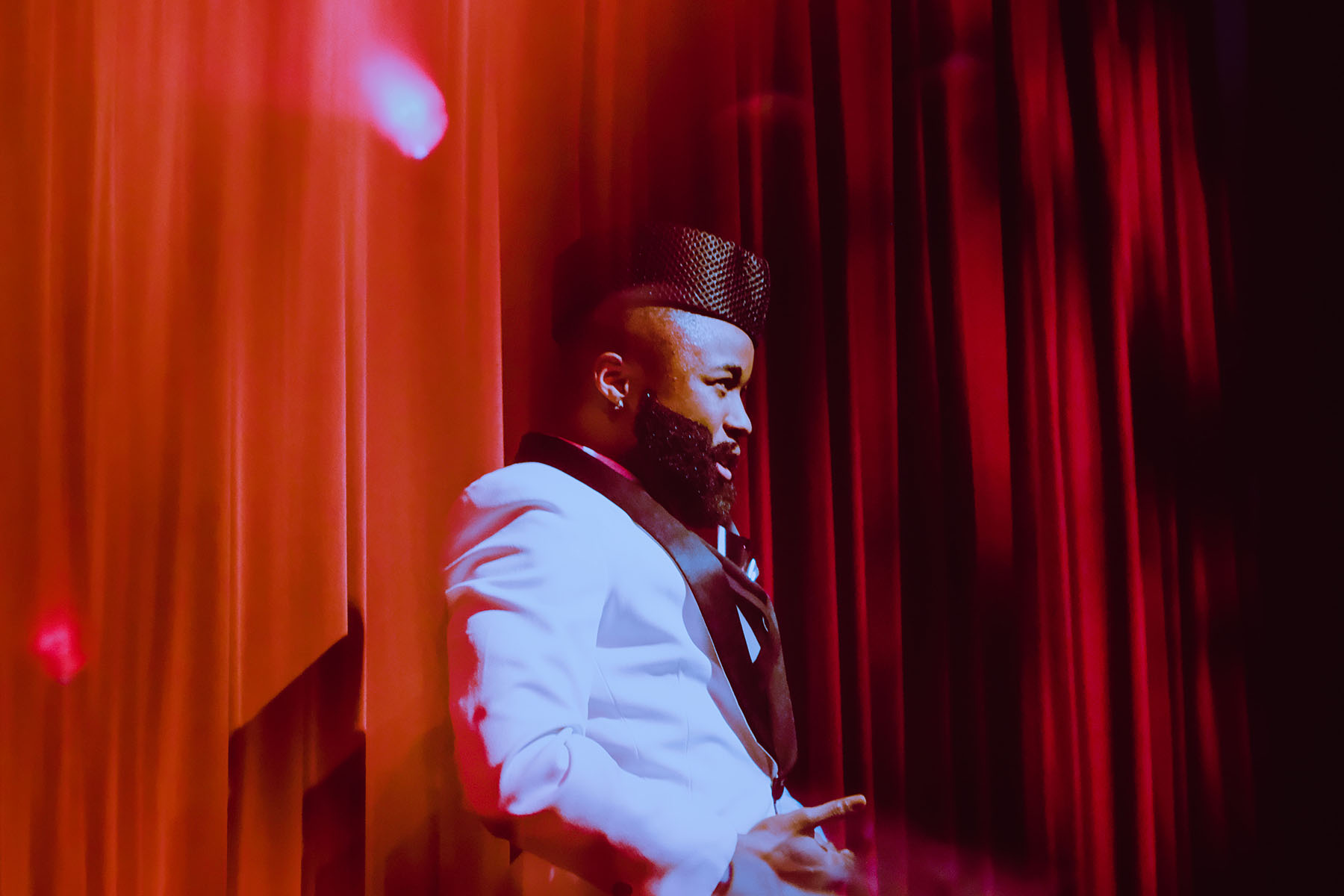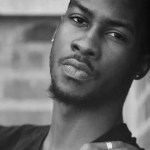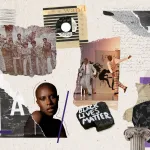This Black History Month, we’re telling the untold stories of women, women of color and LGBTQ+ people. Subscribe to our daily newsletter.
On stage, King Molasses feels limitless. They bring traditional Nigerian clothes, ’80s style double-breasted suit jackets, cowboy hats and denim thongs to LGBTQ+ events across Washington, D.C. — alongside an intense mindfulness that comes from just doing what feels good as a drag king. The outfits, the music, the playfully stoic masculinity and the sensual dance moves all stem from fully inhabiting their body as a nonbinary Black person.
That hasn’t always been so easy for them. But when they perform, King Molasses can focus on only one thing: fully being in their body. They’re able to let go in a way that feels radical.
“What is surreal about my Black body in drag is that I can feel liberated in the context of a world that would rather see me dead at any given moment,” they said. “To be in the practice of doing drag is to be in connection with so many different art forms that represent the diaspora of the Black body.”
That freedom is part of the legacy of ballroom culture — the drag and voguing competitions pioneered by Black and Latinx queer communities in New York City from the 1960s through the 1980s. Drag has continued to evolve as both a subversive refuge for LGBTQ+ people to reimagine queerness and as a mainstream art.
Through it all, drag has been a source of creativity, joy and freedom for LGBTQ+ Black Americans — who are, both currently and historically, the key innovators of the practice. To Michael Roberson, an expert on the history of ballroom and its roots in Black culture, ballroom teaches us what it means to be human.
“Here is a community that has grown in spite of being at the brink of annihilation, in spite of being confronted with multiple disparities, it continues to grow and to find new spaces of freedom,” Roberson said. Ballroom is both an art collective and a political movement that was fueled by Black transgender women responding to disenfranchisement, he said. That political edge has changed with the times, but it hasn’t left.
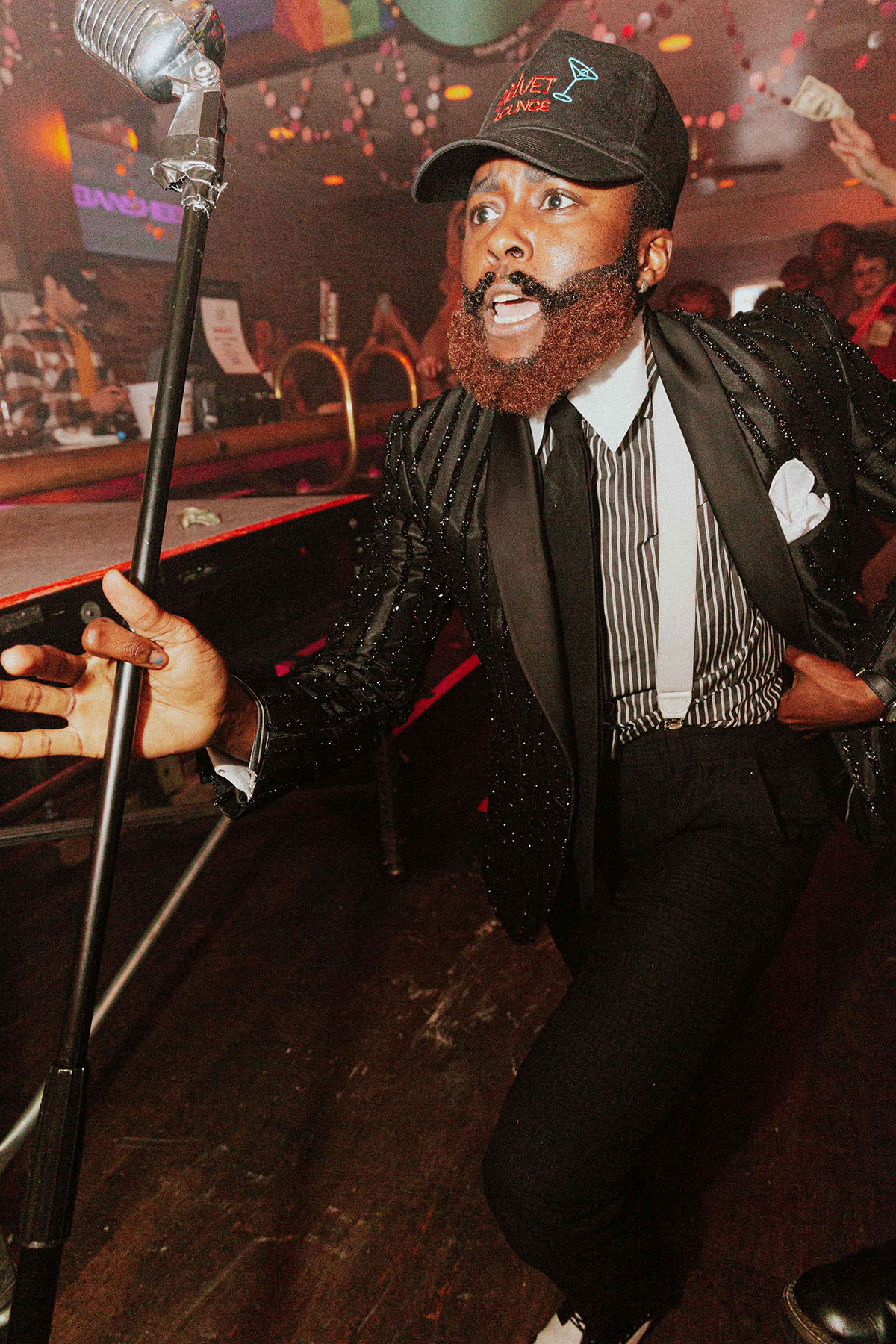
In the United States, at least 12 states are trying to ban public drag performances right now; eight states attempted to do the same thing last year, according to the ACLU. A rising tide of anti-LGBTQ+ legislation is spreading through the country, much of it focused on restricting how transgender and gender-nonconforming people can access public spaces and whether they can live as their true selves.
“Ballroom in many ways continues to expand, even in this nation, in spite of all of these things,” Roberson said. It is still growing as a means to forge spaces of freedom and love in the face of adversity, he said.
For Molasses, who goes by Mo off stage with friends and in daily life, every part of their identity is one that causes them to be oppressed. Drag is what helps them resist.
“It’s really hard to just be Black. And it’s hard to be trans. … When I found drag, I was around 27 years old. I was really struggling with my career and what I was doing, and figuring out who I was. Words like liberation and freedom and resistance, those types of words started to actually mean something in my life,” they said. They asked to go by their stage name for privacy.
Mo saw their first drag performance in college, at the University of Maryland, Baltimore County. Students could sign up to perform in drag. Most of those students were performing different kinds of femininity, set to alternative indie music and earworm pop songs. But Molasses didn’t see drag kings perform until they moved into Washington after college — and that was when the connection really struck. It wasn’t until that moment that they had considered drag as something for them, too.
“The first drag kings I saw were mostly Black,” they said. “That is what allowed me to really see myself.”
Performing drag has brought Mo, a child of Nigerian immigrants, much closer to their heritage. Drag gives them the opportunity to participate in Nigerian customs that they couldn’t otherwise participate in due to traditional gender roles and to reimagine them in a queer way.
They will combine sharp suits with an aso oke hat, or a fila — a soft hat worn by people in Western Africa — or a gele head wrap, which is traditionally worn by women, to create drag around masculine and feminine aspects of their culture.
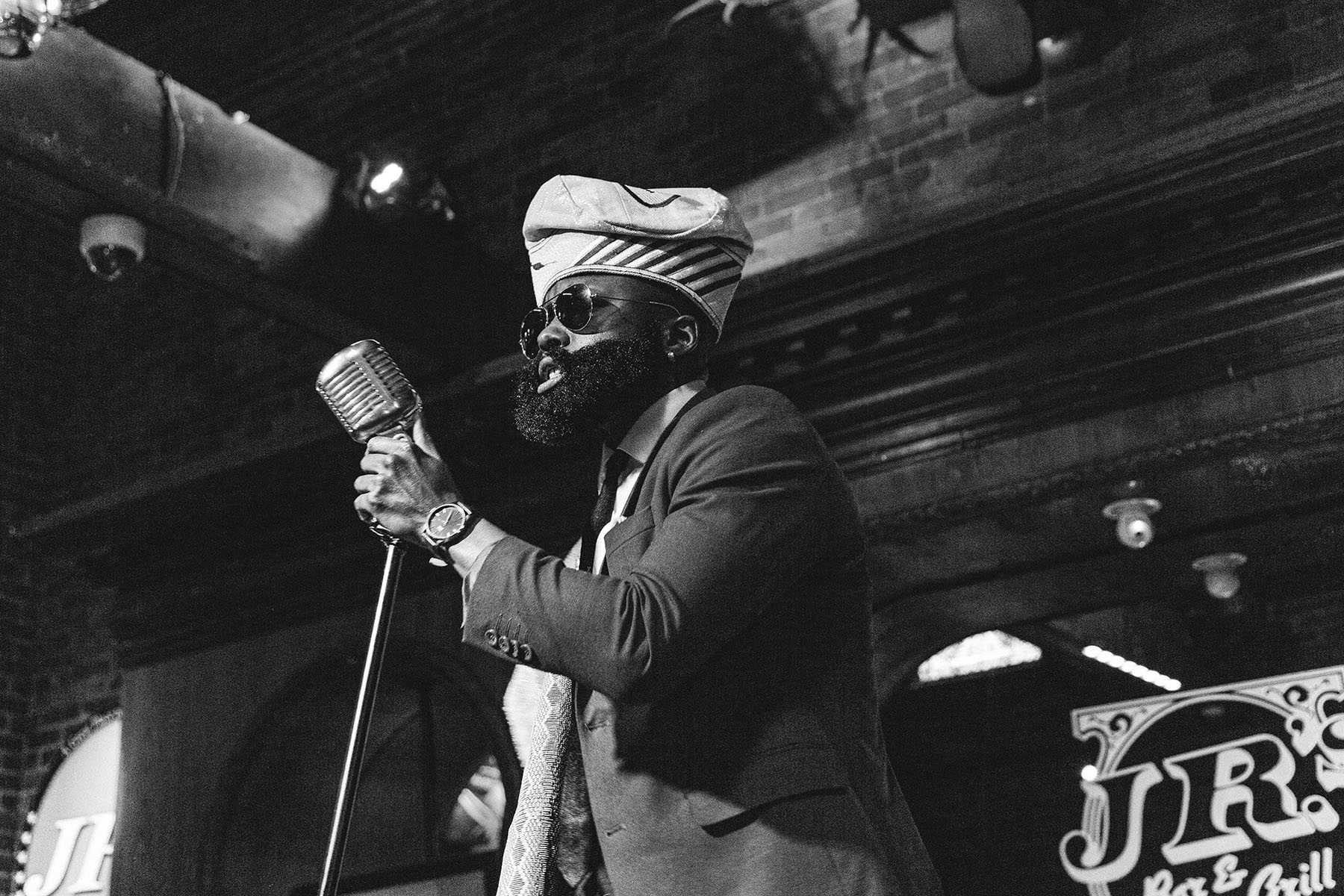
“It ends up in my world, becoming this queering of my culture that feels really empowering,” they said. “There’s no shame in what I am doing. And oftentimes, other Nigerian people who see my drag actually comment on how I wear it. … To have that recognition within my culture means the absolute world to me.”
In the original ballroom scene in New York City, performances were often held on Sunday, Roberson said — which isn’t a coincidence. These were sacred spaces where queer Black bodies were exalted in a world that otherwise rejected them, which included the Black church. The club was the new church, and the drag queens and transgender women performing were conveying the same joy, wonder, sadness and pain that one might feel during a sermon. That radical inclusivity has stayed with drag as it continues to evolve, he said.
“Ballroom is emphatically Black,” he said. “It also is a descendant of LGBTQ+ queer movements … grounded in the ethics of love, grounded in the ethics of joy. Because we organize around joy. Balls are joyous.”
When Mo started drag, they were very guarded about their culture because of the taboos and laws against homosexuality and trans people in Nigeria. Back home, there’s no way they could live their life fully. But queer African and queer first-generation people still exist, they said — and they find it beautiful to express that queerness through their art.
Molasses has performed twice at the John F. Kennedy Center of the Performing Arts in Washington, as well as the Smithsonian National Portrait Gallery and the Baltimore Museum of Art. They don’t have a background in dance — but their magnetic performances have solidified their local reputation as a headline performer.
They are commonly asked if their goal is to create an aura of sex appeal while on stage — something they were initially surprised to hear. That sensuality is a byproduct of feeling embodied and fully present in what they’re doing, they said.
“It is surprising to me because I have not had a very easy and warm relationship with my body and self-image, like a lot of queer people and like a lot of trans people,” they said. “It’s a very sensitive thing.”
Their younger self would have never imagined where they are now, Mo said. They never expected to feel the kind of freedom that they’ve built through drag, or imagined that their local queer community would respond in force to the kind of drag that they do — the kind that allowed them to actually see themself.
